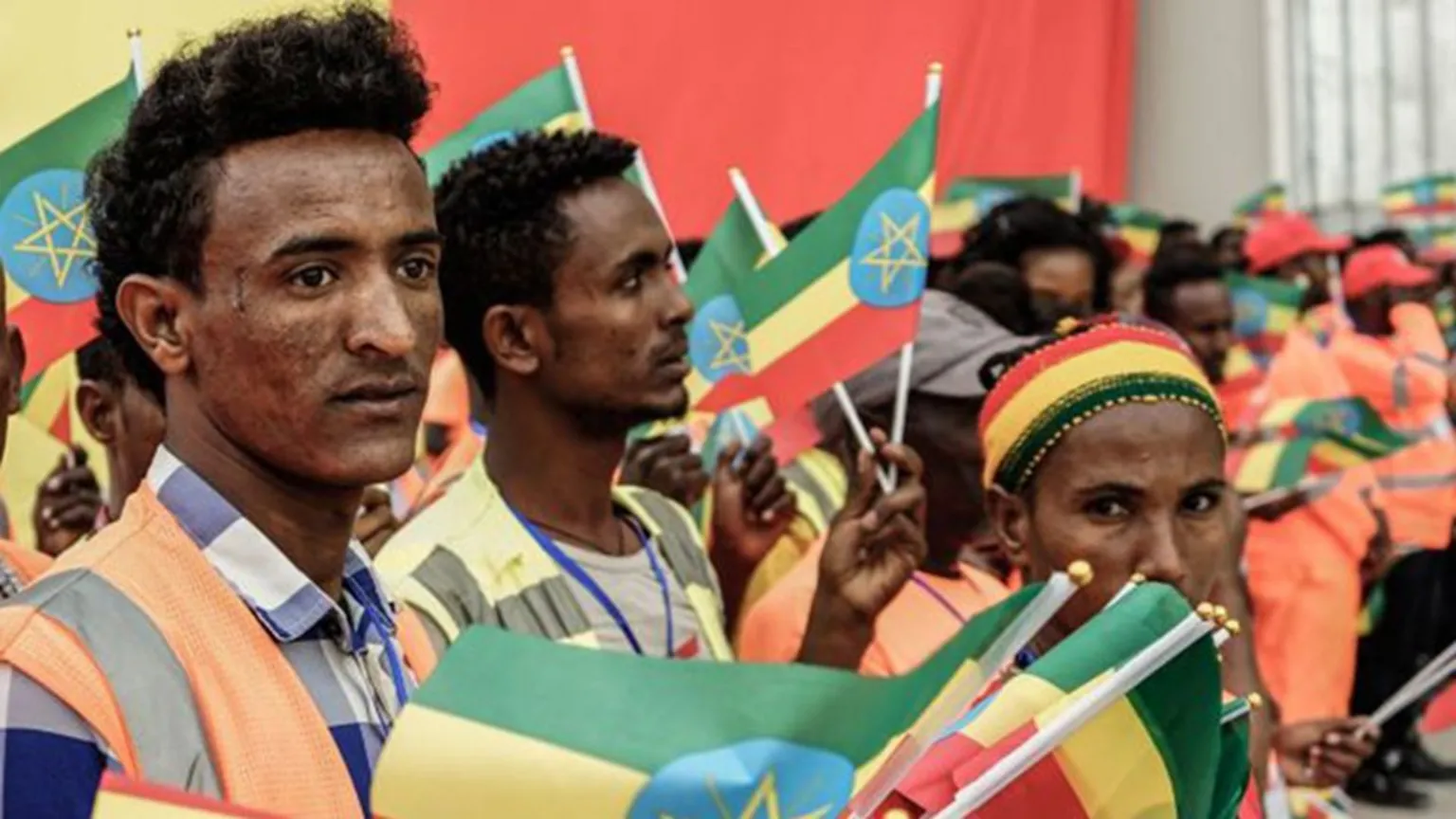The vastness of the building site was at first overwhelming for the young Ethiopian mechanical engineer.
Hundreds were already digging the foundations in tough conditions for what is now Africa’s largest hydro-electric dam, straddling the Blue Nile. The dam will help electrify the country as well as provide power to the region.
Moges Yeshiwas was 27 when he arrived in that remote corner of western Ethiopia in 2012, eager to gain valuable experience in his profession. The completion of the project is set to change his nation, but it also changed his life.
On Tuesday, Prime Minister Abiy Ahmed formally launched the Grand Ethiopian Renaissance Dam (Gerd), hailing it as “the greatest achievement in the history of the Black race”.
Abiy, alongside Kenya’s President William Ruto and Djibouti’s Ismail Guelleh, unveiled a plaque before powering up the turbines.
The dam will help electrify the country as well as provide power to the region.
It wall stretches 1.78km (1.1 miles) across a valley and stands 145m (475 feet) high – it is constructed with 11 million cubic metres of concrete. It has created a huge reservoir, called Lake Nigat, which means dawn in the Amharic language.
The dam’s construction on a Nile tributary, which provides most of that great river’s water, was controversial with downstream countries. Diplomatic tension with Egypt cranked up and there was even talk of conflict.
But for Ethiopia the Gerd has become a symbol of national pride and, in Abiy’s view, it has placed his country firmly on the world stage.
Several fundraising campaigns were held that saw members of the public contribute multiple times.
Clinical nurse Kiros Asfaw was one of those.
Despite being from the Tigray region, which was blighted by a two-year civil war, he contributed when he could to the dam’s construction ever since the plans were first announced in 2011.
He says he bought government bonds more than 100 times – though he had to pause his purchases during the conflict, when basic services, including banking, were suspended in Tigray.
Mr Kiros’ motivation was rooted in remarks made by Ethiopia’s late Prime Minister Meles Zenawi, who oversaw the beginning of the project, that all Ethiopians must come together in backing the dam.
“I promised myself to do everything I could to help it through the finish line,” the father-of-five told the BBC.
Now, with all the turbines working, thoughts turn to what difference the power can make to Ethiopia.
At full capacity it should generate 5,100MW of power – more than double what the country produces without the dam and enough to supply tens of millions more homes in the country. That is however dependent on the infrastructure being in place to carry the power to different parts of the country.
Water and Energy Minister Habtamu Ifeta told the BBC that nearly half of the country’s 135 million people do not have access to electricity.
“That is what we want to reduce now in the coming five years. Our intention is by 2030 at least 90% of our nation should get access to electricity,” he said.
Thirty-five-year-old Getenesh Gabiso, who lives in Alamura, a farming village just outside Hawassa, a major city in southern Ethiopia, is one of those who is imagining the difference it could make.
Her life mirrors that of millions of others in rural Ethiopia.
Despite her small, mud-walled thatched hut being just 10km from Hawassa, Ms Getenesh, her husband and her three children do not have access to electricity.
For cooking she collects firewood around their farm nearby.
And for light they use kerosene-powered lamps. Her husband, Germesa Galcha is concerned for the health of his family.
“[Getenesh] used to have big and beautiful eyes. But all these years of smoke is damaging them. They have become watery,” he said.
“I worry what I would do if the fumes suffocate my children.”
For Ms Getenesh, who, when it is dark, sometimes relies on the weak light from her husband’s mobile phone, just being able to see at night is what she dreams of.
“I want to see light in my house. All the other electric goods don’t matter now. Just light in the evening is all I want,” she tells the BBC.
They are looking forward to the difference that the power from Gerd could make. But the government minister, Habtamu, admits that much more needs to be done to expand the infrastructure of the national power grid.
Tens of thousands of kilometres of cable still need to be laid to ensure that small towns and remote villages can be connected.
But for the engineer, Mr Moges, the power generated on the Blue Nile will eventually make a difference.
He has a son who was born while he was working on the dam.
“I hate the fact that I couldn’t be there for him as much as I needed to,” he says. “But I know his future is going to be bright because of something I have contributed, and I am so proud to tell him that when he grows up.”
Stay ahead with the latest updates!
Join The Podium Media on WhatsApp for real-time news alerts, breaking stories, and exclusive content delivered straight to your phone. Don’t miss a headline — subscribe now!
Chat with Us on WhatsApp







